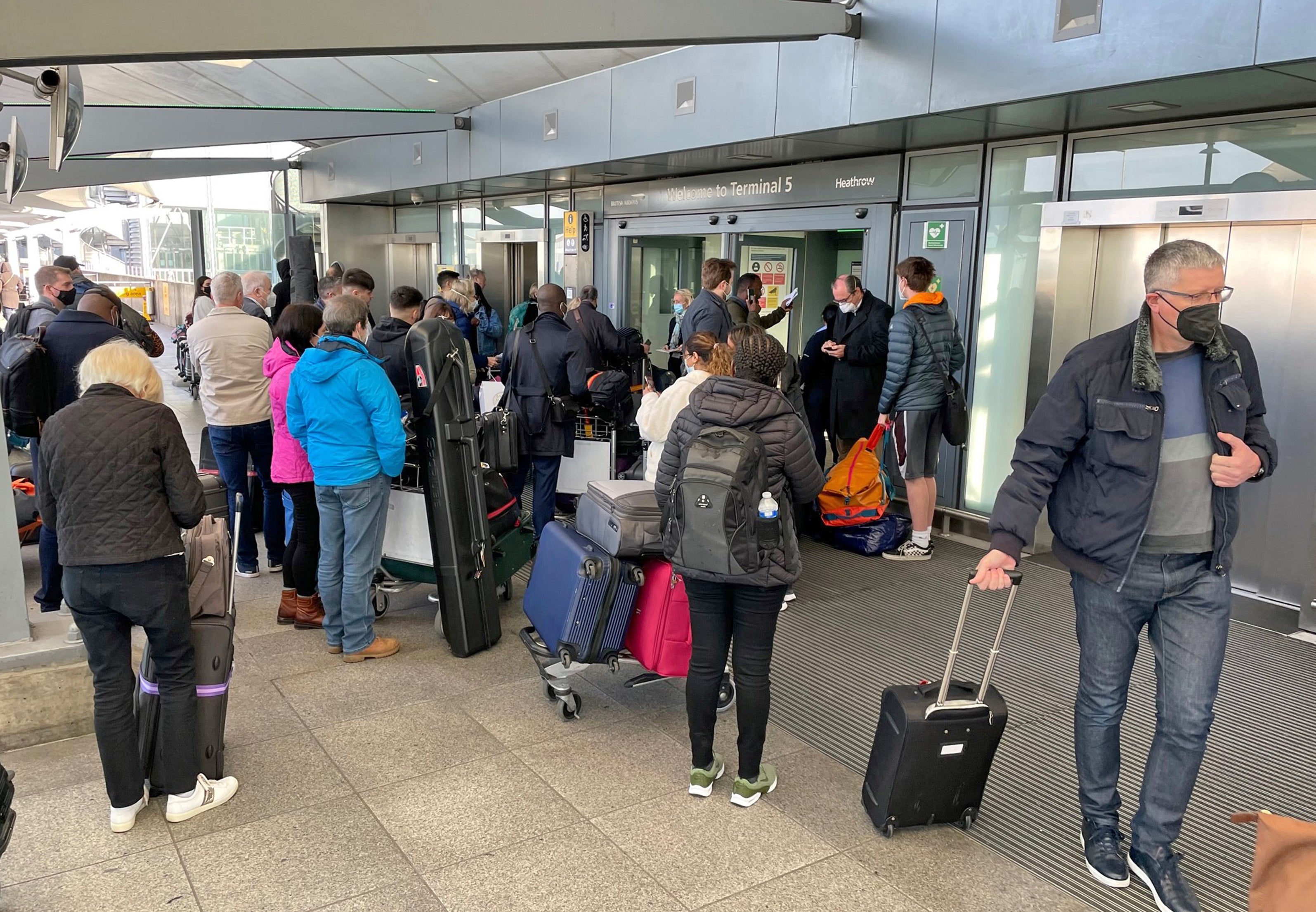Staff shortages leave British Airways ‘floundering’ after IT glitches – expert
Dozens of British Airways flights at Heathrow were delayed or cancelled on Wednesday due to what the airline described as ‘a technical issue’.

Disruption caused by British Airways’ repeated IT meltdowns is being exacerbated by staff shortages, an industry expert has claimed.
Aviation consultant John Strickland, of JLS Consulting, said the airline is left “floundering” when it faces problems such as those at Heathrow on Wednesday.
Dozens of flights at the west London airport were delayed or cancelled due to what the airline described as “a technical issue”.
In late February, the airline was forced to cancel all short-haul flights from Heathrow for several hours due to a hardware problem.
Mr Strickland told the PA news agency: “They seem to have staff shortage issues coming out of the pandemic, and I know definitely that’s something which is going to be more widespread with airlines because of the number of people who were let go.
“With what happened (on Wednesday), maybe if that extra issue wasn’t there in the background, maybe less flights would have been delayed or ultimately cancelled.
“Once the dominoes start to fall, if your manpower is not up to proper planned establishment then you’re really floundering even more.”
He said the carrier is “in the process” of improving its IT systems, but “you just can’t click your fingers and have it all change overnight”.
The vast majority of flights on the airline’s live tracker were shown as departing late or cancelled between 2pm to 9.30pm on Wednesday.
The glitch was resolved on Wednesday afternoon, according to the airline, but the knock-on effect led to further cancellations on Thursday.
A British Airways spokesman said: “We’re very sorry to say that as a result of the technical issue we experienced yesterday and predicted weather disruption, we have had to reduce our schedule at Heathrow today.
“We’re taking steps to ensure as many customers as possible are able to travel as planned today.
“We’ve apologised to our customers and are offering to refund or rebook them onto alternative flights, providing refreshment vouchers and hotel accommodation where needed.”
The carrier has suffered several IT failures in recent years.
Mr Strickland said these give the impression that “they aren’t in control of their IT and they are worse” than their rivals, whereas the “reality” is that other legacy carriers such as Air France and KLM have “largely similar arcane systems that date back decades”.
He explained that low-cost carriers such as easyJet and Ryanair are “better placed” because their systems are more modern due be them being younger companies, and they have simpler operations without multiple cabin classes or a sizeable proportion of passengers taking connecting flights.
He believes the majority of British Airways customers will continue flying with the airline despite its problems, but warned its profitability relies on retaining customers who travel in premium classes.
“Anybody is going to be annoyed whether you’ve paid for the cheapest ticket or most expensive, but those high-margin customers are theoretically much more likely to want to go elsewhere,” he told PA.
Bookmark popover
Removed from bookmarks